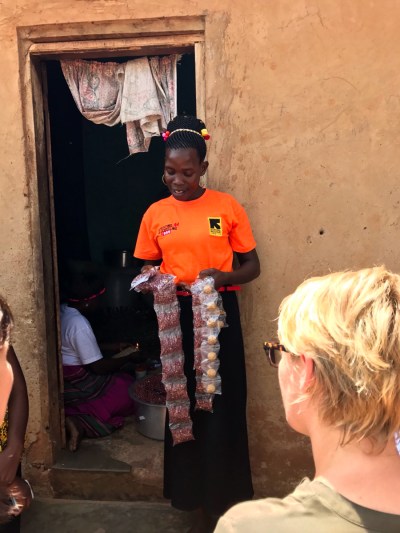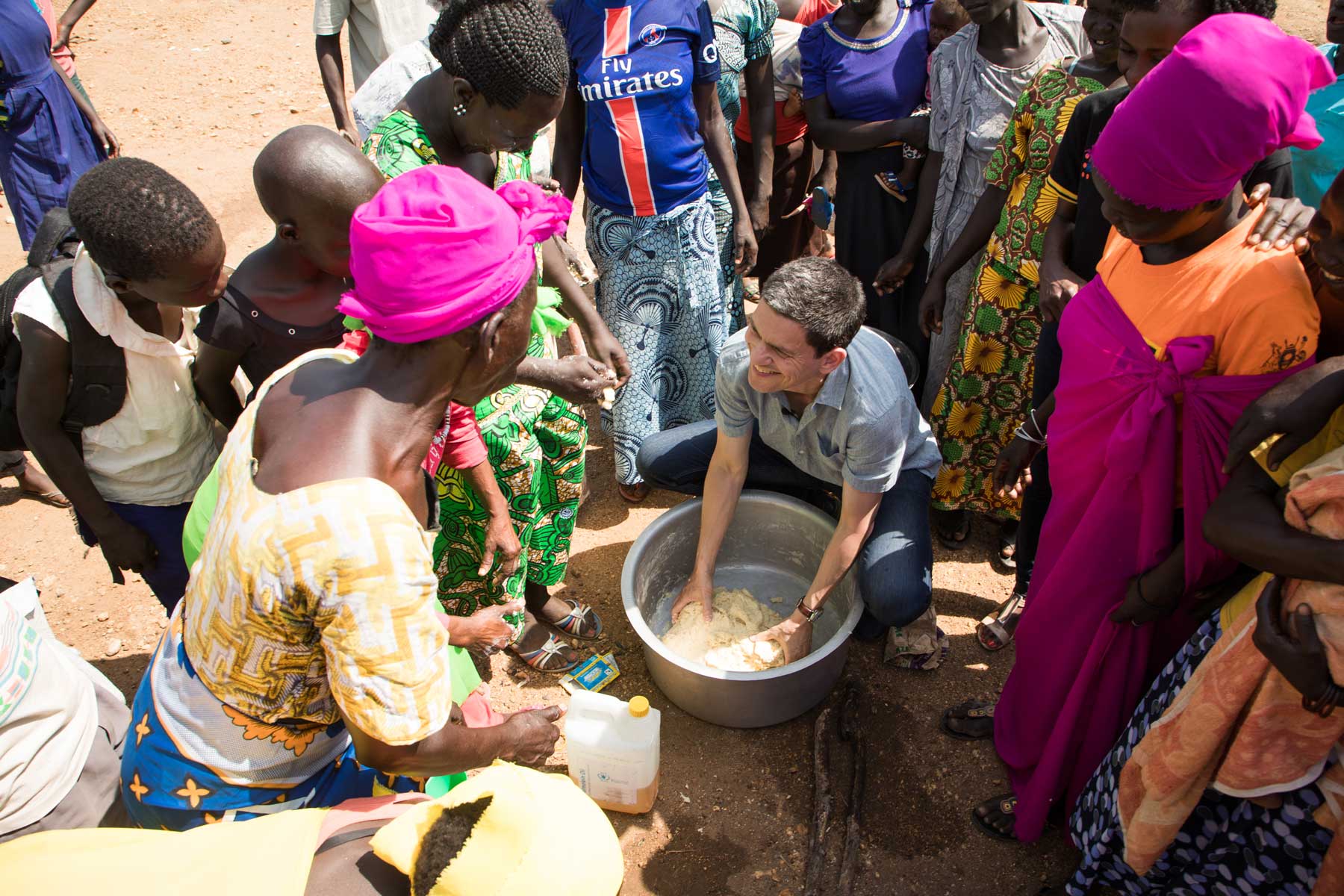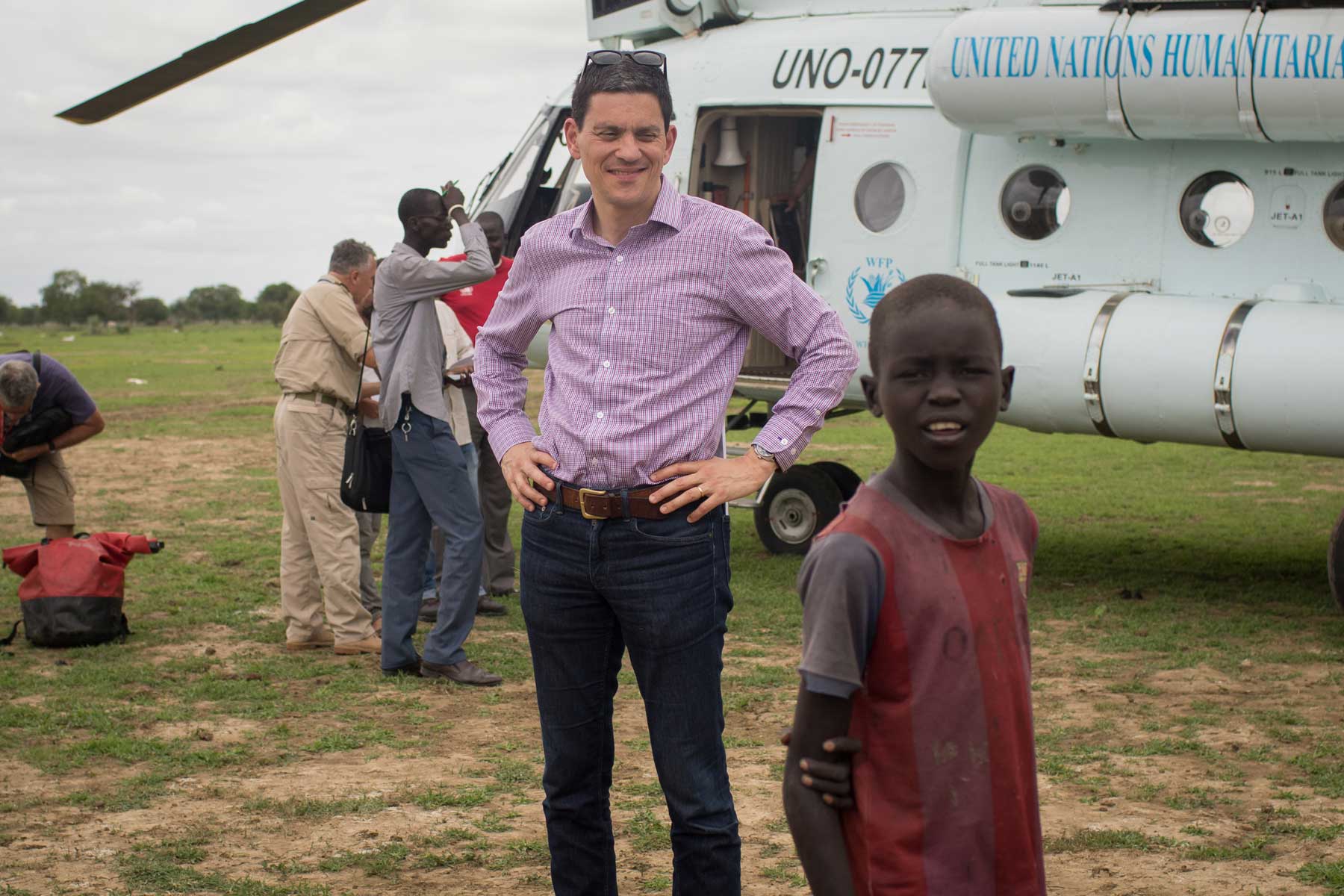David Miliband is a former British Foreign Secretary and is now President and CEO of the International Rescue Committee (IRC), where he oversees the agency’s humanitarian relief operations in more than 40 war-affected countries and its refugee resettlement and assistance programs in 26 United States cities.
Among the multitude of refugees that I met during my trip to Uganda and famine-stricken South Sudan for the International Rescue Committee last week was a woman called Alice. She described witnessing her siblings literally cut into pieces and killed, before she fled the violence in the country’s Unity State.
After making her way through in the bush, the South Sudanese woman eventually made it to one of the refugee resettlement areas in Uganda. Alice now lives in Kampala, where she now stands as this sort of stout community representative and has set up a nut business through a small grant from the IRC. I gave some of her sesame seed balls to the prime minister of Uganda, Ruhakana Rugunda, and suggested they should hire her to cater at diplomatic receptions. She’s a really an extraordinary case of the resilience of the human spirit and an example of how refugees can contribute to the society that they join.
Believe it or not, Alice is relatively lucky.

Tuesday is World Refugee Day, a time to reflect on the dire status of the global displacement crisis. The United Nations released its annual Global Trends Report this week, and the numbers are staggering: In 2016, 65.6 million people were forced to leave their homes due to violence and persecution, up from 65.3 million a year earlier—despite frantic efforts by the international community to staunch the displacements.
If you look at the statistics, you get depressed; if you look at the people, you have hope. If they don’t give up, then we have no right to give up either.

South Sudan is not just the newest country in the world, it’s probably one of the most conflict- ridden, and certainly one of the poorest.
Particularly hard hit has been South Sudan, which only formed as an independent country in 2011. Within two years of South Sudan seceding from Sudan in the north, another civil war started out involving some of the factions—inflamed by ethnic divisions—which had united against a common enemy during the previous civil war. Now, they are the ones fighting over the same resources.

For the first time in six years, the UN has declared a famine—this time in Unity State, the South Sudanese region that I visited. The famine is not the product of natural disaster. It’s the product of conflict, combined with poverty, combined with poor governance, combined probably with a bit of climate change and climate stress as well. And what I saw during my visit were far-flung areas with high levels of malnutrition and people needing emergency aid—such as “plumpy nut,” which is a high protein recovery substance for people, especially children, suffering from severe acute malnutrition.
I also saw an entire hamlet of roughly 400 people sitting on the ground in a clearing waiting for their turn to see an IRC doctor or nurse. There were reports of cholera in parts of South Sudan as well. I posted a picture to Twitter of a woman who’s got a child in her arms being fed for the first time in a long time. The immediate thought that comes to your mind is that it’s obviously good news that the child is feeding, but the minute you see the picture, you will worry about the mother, too. One of the things that comes across very strongly is how often you see women neglecting themselves for the sake of their children; having nothing left to produce milk for breastfeeding.
Those who have made it to Uganda have found help—and hope. One million refugees have fled there in the last 11 months from South Sudan, with another 500,000 to 700,000 fleeing to other countries in the region.
They’re given a plot of land, the right to work, and free movement across the country. This is a country where the annual average income is $962 a year. It’s a relatively poor country, but one that’s absolutely determined to do right by refugees, not least because the Ugandans were refugees themselves about 30 years ago under Idi Amin.
It’s really important for people to hear that Uganda is a country that is setting an extraordinary standard for how to help refugees. Remember, the U.S. last year took in 85,000 refugees—a number that the Trump administration wants to cut down to 50,000—and they get three months housing and are expected to get a job quickly.
This is a personal issue for me. After leaving British politics, I came to lead the IRC nearly four years ago, in part because I thought this is a rising issue and in part because I thought the organization had huge potential. But I also joined because both my parents were refugees and so I think in a small way I’m closing the circle and offering some sort of token of thanks to those people who once helped my parents.
So, as someone who now lives in the U.S.—a country formed by immigrants where there’s a big debate whether or not the country owes anything to today’s immigrants and refugees—to see Ugandans, from top to bottom committed to help their neighbors fleeing conflict and persecution was really striking. But Uganda needs help. Food rations have been cut from 12 kilograms a person to six kilograms a person for flour, maize and sorghum in the north of the country because the United Nations World Food Programme is short of money.
And at a time in which the U.S. government is threatening to cut its funding of overseas aid by a third, I saw the drastic consequences warning against further cuts.
There is plenty, however, that RealClearLife readers can do to help.
One is visit the IRC website and be informed, so they can have a fact-based opinion on the global refugee crisis and America’s contribution to resolving it. Secondly, because the IRC is both an international aid organization and a refugee resettlement agency, I would love readers to volunteer at their local office to mentor or support a refugee arriving in the U.S. We still need people to explain where’s the local bus system, where’s the local doctor, where are the local shops, and how they can find jobs to support themselves, whether it be in Los Angeles or Boise, Idaho. Lastly, I wouldn’t be doing my job if I didn’t say the generosity of the American people comes from private donations as well as through their taxes and their government.
As the government reduces the amount of its support, it’s desperately important that the American people show how their hearts continue to beat beyond borders.
Learn more and donate: https://www.rescue.org/topic/global-famine
This article appeared in an InsideHook newsletter. Sign up for free to get more on travel, wellness, style, drinking, and culture.
























